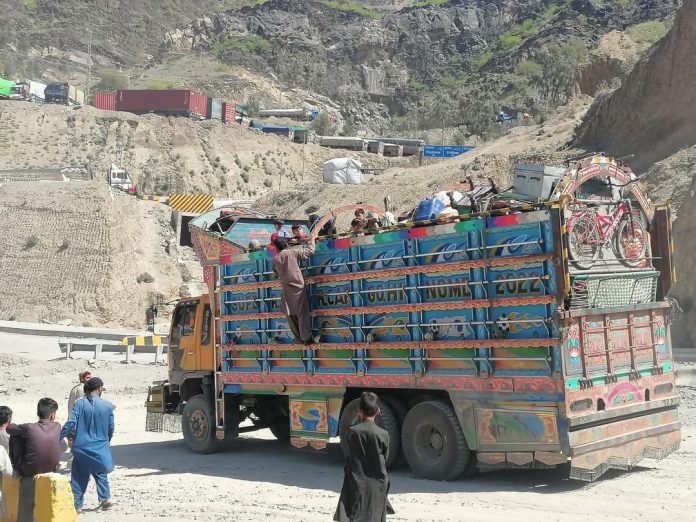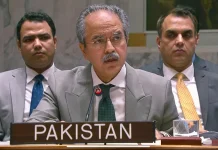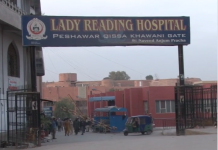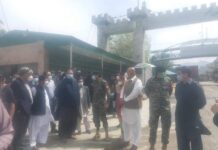Ashrafuddin Pirzada
LANDIKOTAL: The United Nations High Commissioner for Refugees (UNHCR) has raised serious concerns over the ongoing return of those 0.2 million Afghan nationals from Pakistan, that the identified vulnerable individuals, including Afghan artists and journalists, may face grave risks upon their return to Afghanistan, officials said on Monday.
UNHCR spokesperson Qaiser Khan Afridi said that around 200,000 Afghans registered with UNHCR in Pakistan were thoroughly verified last year and found that these individuals including journalists, human rights defenders, artists, religious minorities and people affiliated with former governments in Afghanistan in the past were as high-risk Afghan citizens who could face serious consequences upon their return to their country.
“These individuals could face threats to their lives and freedoms if returned to Afghanistan in the current scenario,” Afridi warned while talking to the media.
He highlighted ongoing human rights concerns in Afghanistan, including restrictions on girls’ education and bans on women working. “They believe that the individuals above will not survive or live freely if sent back to Afghanistan,” Afridi added.
Qaisar Khan Afridi further added that the UNHCR had issued an advisory in 2021, urging all countries not to forcibly return Afghans due to the unfavourable situation in their homeland. Afridi stressed that Afghan repatriation should be approached from a humanitarian, not a political perspective.
Despite several challenges being faced by Afghan nationals in their home country, Pakistan has intensified its repatriation drive. Authorities have directed undocumented Afghan nationals and Afghan Citizen Card(ACC) holders to voluntarily return, especially from major urban areas like Cities in Punjab, Peshawar,
Islamabad, Rawalpindi, Lahore and other cities. Those who did not comply within the given timeframe risk deportation, officials said.
At the Torkham border crossing, the return process has remained mostly peaceful suring the past two weeks but emotionally painful. In Landikotal, many families that had spent around 40 years in Pakistan were seen leaving in tears. Nasar Khan Laghmani, who lived in Pakistan for 30 years, broke down in tears as he prepared to cross into Afghanistan. The most emotional moments came from young people who were born and raised in Pakistan and had never seen Afghanistan before.
Residents in Khyber district extended warm farewells, expressing solidarity and offering prayers for the departing Afghans.
Many on both sides emphasized that their cultural and emotional ties would remain intact despite the separation.
According to UNHCR and local administration, more than 50,000 individuals, including thousands of women and children, have crossed back into Afghanistan through Torkham since early April. Meanwhile, 13,000 Afghan citizens left voluntarily in the past two weeks.
UNHCR continued to call for a measured and compassionate approach as more families face the difficult decision of leaving behind decades of life in Pakistan for an uncertain future in Afghanistan.












